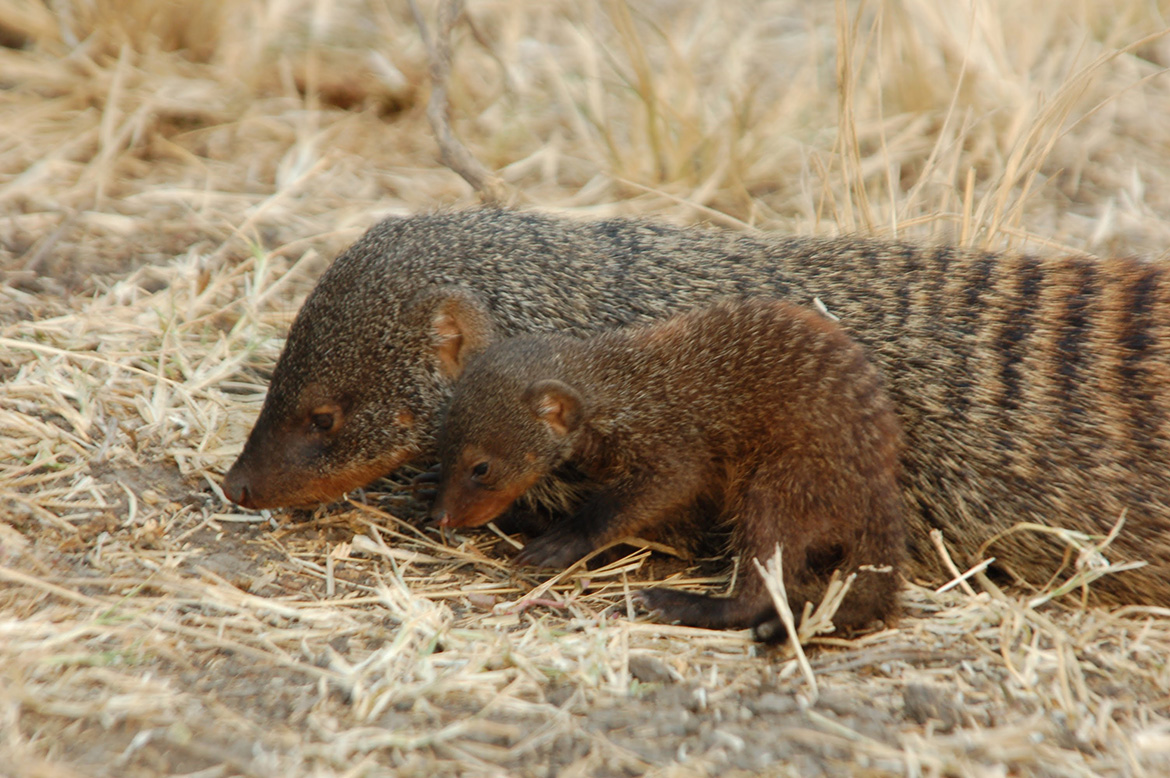New research finds mongooses inherit behaviour from role models
- Wednesday, May 23, 2018
Dr Harry Marshall, Lecturer in Zoology from the Centre for Research in Ecology, Evolution and Behaviour has completed a study finding that young mongooses inherit behaviour and learn permanent habits from a mongoose ‘role model’ rather than their genetic parents.

Banded mongooses have an average lifespan of two to three years and live in social groups of about thirty individuals. Young mongoose pups are consistently cared for one-to-one by a single adult—not their mother or father.
This study found evidence that young mongooses learn foraging behaviours from their adult ‘role model’, and remembered these learned behaviours into adulthood when they could then pass them on to new mongoose pups. They also learnt a role model's foraging behaviours more faithfully when they had a single role model throughout their dependent period.
The transmission of socially learned information across generations is known as cultural transmission. Human and animal behaviour is shaped by cultural transmission as our behaviour is determined by what we learn from parents and teachers as well as our genes.
Harry Marshall said “Cultural inheritance is usually expected to lead to uniformity within groups, but our work confirms a classic theoretical prediction whereby when individuals learn from their own personal teacher, cultural inheritance can work to maintain diversity.”
This study was conducted at the Banded Mongoose Research Project in Uganda, in collaboration with Professor Michael Cant at the University of Exeter. A previous study also showed that mongooses adopt more specialised dietary preferences in response to greater in-group competition for food.
To read the full article, titled Decoupling of Genetic and Cultural Inheritance in a Wild Mammal, please click here.
The Department of Life Sciences offers outstanding undergraduate and postgraduate degrees including two new integrated masters' courses that combine Undergraduate and Masters-level study in Zoology or Biological Sciences.